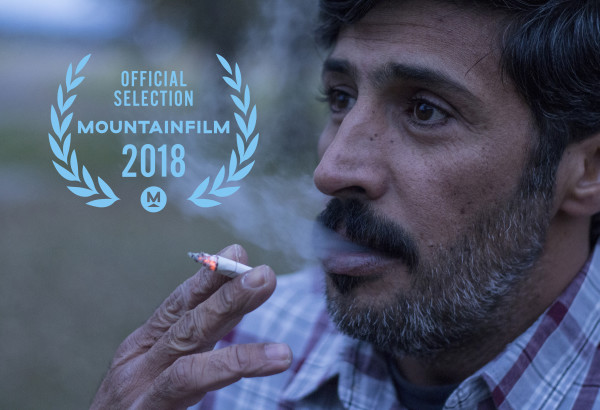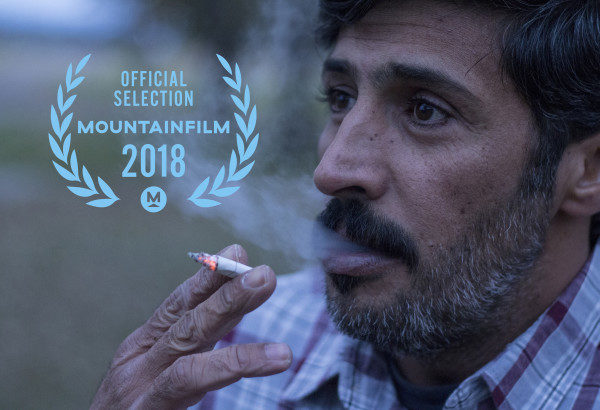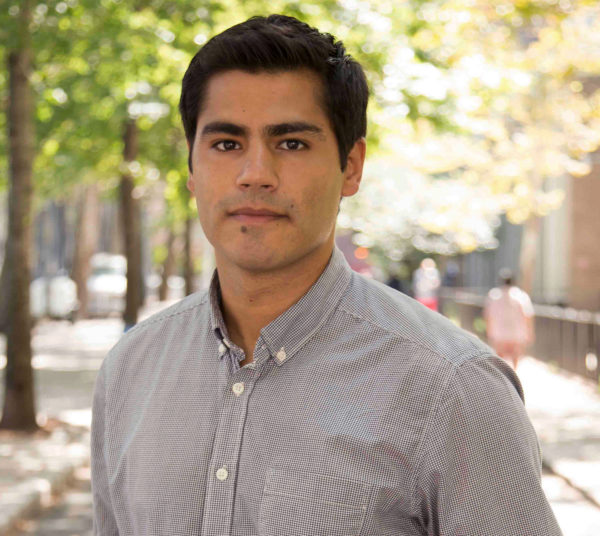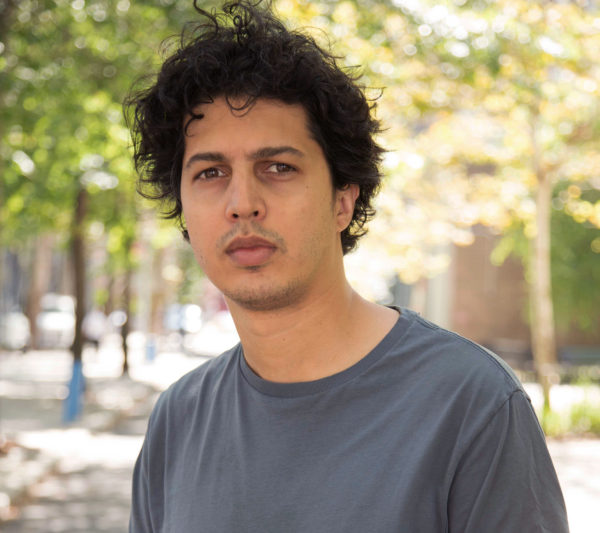
18 May Mountainfilm: “The Interpreters”
Start planning your 2018 Mountainfilm Festival, happening over Memorial Weekend in Telluride. The schedule includes times and venues for films, presentations, the Moving Mountains Symposium, parties, town talks, book-signings, special events and more.
Click on the FULL SCHEDULE HERE and look for “The Interpreters.” Scroll down to listen to my interview with the film’s directors: Andrés Caballero and Sofian Khan. And watch a trailer for the doc.
Also, Telluride author Susan Dalton captures Mountainfilm‘s best memories in “Mountainfilm: 40 Years.”
The beautiful coffee table book costs just $49 (tax included) and can be pre-ordered now here or head to Between the Covers Bookstore, 224 West Colorado Avenue or call 970-728-4504.

It’s official.
The start of Telluride’s robust summer festival season begins with a celebration of the 40th anniversary of Mountainfilm, Memorial Weekend 2018, May 25 – May 28, a gathering of the tribe of indomitable spirits dedicated to using the power of film, art and the exchange of ideas to move people to create a better world.
The list of 2018 films includes, as always, inspiring shorts and epic features.But special for this anniversary year are docs from Mountainfilm’s archives, a best-of list from festivals past.
And if Mountainfilm’s past predicts its future, all those films will be worth the wait in line.
All will generate the buzz that drives the momentum of the weekend.
But only one film on the program was among the 19 feature-length docs selected in 2016 out of 500 submissions for a prestigious MacArthur Grant: “The Interpreters,” directed by Sofian Khan and Andres Caballero for Capital K Pictures.
That honor was for “…excellent and original nonfiction storytelling on issues that matter to our society…,” announced MacArthur’s director of Journalism and Media.
“The Interpreters” is also one of a number of films whose narratives are in lockstep with this year’s theme of migration and the refugee crisis.
Since the beginning of the conflicts in Iraq and Afghanistan more than than 50,000 local nationals served as military interpreters, helping to protect U.S. troops on the ground in Iraq and Afghanistan, enabling soldiers to communicate with the local population.
According Matt Zeller, founder of No One Left Behind, whose interpreter saved his life in Afghanistan, those individuals were the Americans’ ears and tongues. When a gun battle broke out, the enemy would try to kill the “terps” first because, without them, Americans would not be able to engage with the local population.
At the same time, interpreters were considered traitors to their country and religion and were forced to adopt pseudonyms and cover their faces in order to hide their identities.
Phillip Morris is an example.
In fact the story of this Iraqi interpreter, whose chain-smoking earned him the nickname, was what inspired Khan and Caballero to make “The Interpreters,” the man’s warm, contagious laugh belying the dangerous work he undertook for four difficult years.
Phillip served alongside Paul Braun, a sergeant in the Minnesota National Guard who became his best friend. After coalition forces withdrew in 2011, Phillip and his family came under threat. However, back in Minneapolis, Paul worked tirelessly to get Phillip to safety.
In 2008- 2009, the U.S. created the Special Immigrant Visa (SIV) program to help interpreters like Phillip.

However, the process, crucial to the lives of those in danger, has been marred by long delays and backlogs: to date, about 10,000 interpreters have received visas, just a fraction of the 10’s of thousands left behind.
In addition, overheated rhetoric against Muslims and refugees, as well as recent developments in Congress, suggest a shift in policies that would make it even harder for interpreters and their families to get to the U.S.
Meanwhile, in a recorded phone interview, Taliban spokesman Zabiullah Mujahid confirmed that interpreters are considered kafir—that is, apostates from Islam—and that executing them is justified unless they stop working for the enemies.
Yet the SIV program for Iraqis has now come to an end, and both the House and the Senate recently failed to renew and increase the number of visas for the nearly 10,000 Afghans with pending applications.
When Saigon fell to the North Vietnamese in the 1970s, American government personnel ignored the red tape and helped thousands of locals who had worked with them escape in boats, planes and helicopters, eventually granting them citizenship in the US. The question that often comes up now is why are we not doing the same for Iraqis and Afghans?
During a fierce speech on the Senate floor, Senator John McCain called this a humanitarian and a national security issue:
“You can’t expect people in future conflicts we’re in to cooperate and help the United States of America if we’re gonna abandon them to a cruel and terrible death.”
Phillip was one of the lucky ones. He had an American soldier advocating on his behalf and he made it to the U.S. in 2013. However, his family’s paperwork was delayed and they were all forced to stay behind in Iraq amidst the rising threat of ISIS. As Phillip acclimates to life in America, he is seen waiting anxiously for his family to join him. Eventually he is forced return to Iraq to complete their paperwork – and face the threat of being a marked man in his home country.
In Afghanistan, many other interpreters are living in hiding with their families as they wait for their visas to be processed.
Malik, who is still an active interpreter with the Americans at the Air Force base in Kabul, has been waiting for his SIV for nearly four years.
Somehow, Malik has the security clearance to continue working on the base alongside U.S. troops, while still being stuck in the security review stage of the visa process. Every trip back and forth between the bases is dangerous. Fearing for his life, Malik moves with his wife and two children from his father-in-law’s house to his sister’s house every other week.
Mujtaba is another Afghan interpreter who worked with the army and the DEA fighting drug traffickers. But the danger was too great. He decided he could not wait for his SIV to come and left with his family for Turkey. However in their attempt to cross the Aegean Sea from Turkey to Greece with the help of smugglers, a tragic accident set the man on a nightmare path he could never have imagined.
The stories of these three interpreters wove together over the course of three years, with the film’s directors, Khan and Caballero, following the men in their struggle for safety in the aftermath of two questionable wars with tragic results.

Sofian Khan & Andres Caballero spent 3 years making “The Interpreters.”
In contrast to most politicians pushing for more stringent vetting of interpreters, retired Sgt. Paul Braun provides the perspective of someone who — like many veterans — understands the value of interpreters in war time – and the threat they are now facing.
“The Interpreters” is an immersive, character-driven story that features footage recorded by the characters themselves with their phones, images and videos sent back and forth via Facebook and WhatsApp, which represent an important part of the regular communication that goes on between Americans, Iraqis and Afghans who once worked together.
Archival footage rounds out the picture.
“Our goal is to inform viewers about an important issue, which became even more relevant after the last U.S. election, without overshadowing the personal journeys of the characters, and without losing the pace of a more artistic visual approach,” explain the directors.
From the initial buzz “The Interpreters” is Mission Accomplished.
Mountainfilm marks the doc’s official premiere.
More about the directors:

Andrés Caballero is a New York-based filmmaker, journalist and public radio producer. He’s currently a producer at NPR’s Latino USA and his stories have appeared on NPR’s Morning Edition, Weekend Edition, PBS, Deutsche Welle and other media outlets. He produced “The Military Voices” series for StoryCorps, about military personnel who served in post 9/11 conflicts. Andres is a former NPR/Above the Fray fellow, where he reported stories from Cameroon and the Central African Republic. He co-directed “Gaucho del Norte” (2015), an observational documentary that follows the journey of a Patagonian immigrant sheepherder recruited to work in the American west. Andres is also a 2016 MacArthur Documentary Grant recipient for “The Interpreters,” a feature length documentary about Iraqi and Afghan interpreters who worked with U.S. forces and are now trying to rebuild their lives in the aftermath of war. He currently serves on the board of the Americas Media Initiative, an organization that supports independent filmmakers in Cuba.

Sofian Khan is the founder of Capital K Pictures, a New York-based production house. His shorts have appeared on Field of Vision, The Fader, Al Jazeera, PBS, Fusion, The Atlantic and The Huffington Post. He is a 2016 MacArthur Documentary Grant recipient for “The Interpreters” (2018). Sofian’s first feature “The Dickumentary” (2014) — a definitive history of the penis from its evolution millions of years ago to today — was acquired by Breaking Glass Pictures in the U.S., and made its festival premiere at the Atlanta Film Festival. His second feature “Gaucho Del Norte”(2015) was released shortly after, co-directed with producing partner Andrés Caballero. The film was a Jerome Foundation grant recipient, following South American shepherds who are recruited to work in the American west. It premiered at the 2015 Big Sky Documentary Film Festival, and subsequently aired on PBS’ America ReFramed series. Currently Sofian is producing “An Act of Worship,” based on a short film about the travel ban that he co-directed for Field of Vision. The feature-length documentary has received support from the Ford Foundation, the Islamic Scholarship Fund and Mountainfilm’s commitment grant.


Sorry, the comment form is closed at this time.